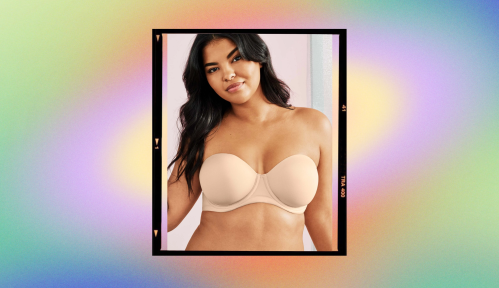If you have a particularly sensitive tummy, you’ve likely had to part ways with (or at least cut back on) some of your favorite foods. The people who get it, get it: cheese and lactose intolerance make a silent-but-deadly combo, pizza can be an acid reflux nightmare, and spicy food and IBS tend to be a match made in hell.
Experts in This Article
Boston-based registered dietitian and gut health expert
board-certified gastroenterologist and adjunct assistant professor at Touro College of Osteopathic Medicine
board-certified gastroenterologist and founder of Well Sunday
For those with irritable bowel syndrome, coffee can make managing IBS symptoms much more difficult. We hate to be the bearer of bad news, but that latte you’re drinking could be the culprit behind your GI issues.
Ahead, we gathered two expert gastroenterologists’ advice regarding coffee and IBS. Read on to learn more about the relationship between coffee and digestive health, how caffeine triggers IBS symptoms, and tips for drinking coffee with IBS.
What is IBS? What causes IBS?
Irritable bowel syndrome is a chronic functional gastrointestinal disorder that affects roughly 15 percent of the population. The disorder is marked by a wide array of symptoms, including but not limited to gas, abdominal pain, bloating, constipation, and diarrhea.
Because there are so many different possible combinations of symptoms and causes, the IBS spectrum is wildly diverse. Some IBS patients experience few and far between flare-ups, while others have to institute major diet and lifestyle changes in order to combat their symptoms.
“The causes are numerous for irritable bowels, so it’s a multifactorial syndrome,” says gastroenterologist Sarah Robbins, MD, “and it’s a syndrome because it’s a cluster constellation of symptoms that all go together.”
According to Robbins, the causes of IBS are numerous and vary greatly from person to person. Genetics, anxiety, depression, gut microbiome diversity, and nutritional and dietary factors can all lead to an IBS diagnosis.
“I think the easiest way to think about the causes is in the context of a biopsychosocial model,” says Dr. Robbins. “There’s biological components, there’s psychological components, and then there’s social or behavioral things that can influence an irritable bowel on top of that.”
Why does coffee make you poop?
The caffeine and chemical compounds in coffee increase gut contractions, which move waste down and along your intestinal tract quickly. Caffeine stimulates the gut to move things along quicker, so to speak. Along with eating breakfast, moving around the house, and anticipating a hectic workday, you can thank coffee for helping you poop in the morning.
“Coffee stimulates the release of two hormones, gastrin, released in the stomach, and cholecystokinin, released from the small intestine,” Kate Scarlata, RDN, a FODMAP and IBS expert, previously told Well+Good. “Gastrin increases colonic movements, and cholecystokinin releases bile and digestive enzymes, initiating the digestive process.”
“When people have an irritable bowel, they are more susceptible to the stimulant effects of coffee,” adds Dr. Robbins. “With IBS, it just becomes more pronounced and more prominent.”
Coffee and IBS
So, why is coffee irritating your stomach? You can blame the caffeine, according to GI doctors.
How caffeine triggers IBS symptoms
Due to its high caffeine content, coffee is considered one of the worst trigger foods for IBS and can cause adverse side effects for people with sensitive stomachs, especially those with irritable bowel syndrome. “It stimulates the gut to function more quickly, thus increasing gut motility,” says gastroenterologist Niket Sonpal, MD. This is why doctors often don’t recommend coffee for IBS patients, as it can cause diarrhea and stomach pain.
If you’re a morning coffee drinker, there may be more at play than just the java you’re sipping. Irritable bowel syndrome deals heavily with the brain-gut relationship, so instances of morning stress and anxiety can aggravate it (hypnotherapy for IBS might not be so far-fetched, after all).
“You’ve got the coffee, but you’ve also got this really stressful environment where you’re trying to rush out the door first thing in the morning and get to work,” says Dr. Robbins. “Those feelings exacerbate irritable bowel syndrome.”
“In terms of IBS, coffee can be either a friend or a foe,” explains Dr. Sonpal, who recommends consulting a doctor to determine if you have IBS and find out which of the three types of IBS you have: IBS-C (IBS with constipation), IBS-D (IBS with diarrhea), or IBS-M (IBS with mixed bowel habits). “For those with IBS-D, coffee can be problematic because gut motility is already faster than it should be,” he explains.
No matter what type of IBS you have, Dr. Sonpal suggests you stop drinking it for a period of time to see if quitting coffee improves your symptoms. (Elimination diets typically take three to six weeks for best feedback and results, FYI.) Then, if you do notice an improvement, either continue to stop drinking coffee or introduce it back into your system in small doses so you can figure out how much your body can tolerate, he suggests.
Decaf coffee and IBS
Can you drink decaf coffee if you have IBS?
Maybe.
Decaffeinated coffee or lighter roasts may be worth trying if you have IBS. Just bear in mind: “There is a lot of conflicting data to say which type of bean, roast, and milk (if yes or no) will affect your IBS, but the best advice I can give my patients is that they should be mindful of what they are drinking and should experiment slowly with new types of coffee to see what agrees with them and what doesn’t, then take it from there,” says Dr. Sonpal.
Dr. Robbins echoes this precaution, adding that some of the compounds found in coffee—even decaffeinated coffee—can be irritating to an IBS gut. For instance, coffee typically contains salicylates, a natural chemical compound found in plants that can trigger an IBS flareup for those sensitive to them, per a small pilot study published in JGH Open2.
Content of common caffeinated products
Unfortunately, coffee isn’t the only high-caffeine offender that IBS patients should look out for.
Some of the most popular sources of caffeine, according to the Harvard School of Public Health, include:
- Coffee (95mg per cup)
- Espresso (65mg per shot)
- Energy drinks (85mg per cup)
- Black tea (47mg per cup)
- Regular or diet soda (40mg per can)
- Chocolate (24mg per ounce of dark chocolate; 6mg per ounce of milk chocolate)
Tips for drinking coffee with IBS
Dr. Sonpal says that based on anecdotal evidence he’s collected from his patients, a bit of milk or a plant-based milk substitute or creamer may help ease an IBS reaction. “There are no studies to prove this yet, but patients have told me they notice improvement with adding milk or milk substitutes into their coffee,” he says.
“Others have noticed that quitting the use of sugar substitutes improves their diarrhea, too, so if you have lots of gas and diarrhea, giving up all sugar substitutes is a good idea,” he adds.
In general, doctors don’t recommend pairing coffee and IBS. Coffee can exacerbate symptoms like diarrhea and stomach pain due to the fact that the caffeine in coffee speeds up gut motility. But not everyone with IBS will have issues with coffee, so the best way to figure out if you do is to eliminate it from your diet and then reintroduce it in small doses to see how you feel. Depending on the person, lighter roasts or beans with less caffeine may be easier for people with IBS to consume.
Luckily, there are ways to counteract caffeine if you have one sip too many, and with your doctor’s approval, OTC supplements like magnesium can help soothe GI upset post-coffee.
Apart from these coffee-drinking tips and some trial and error, the most pivotal factor is the kind of IBS you have—people with IBS-D tend to have a harder time with coffee because their guts already move faster than the average person’s. The best way to determine what’s right for you is by working with a doctor to decide and, of course, following your gut.
FAQs:
Can I drink coffee if I have IBS? Does IBS get worse with coffee?
Can you mix coffee and IBS? Sure.
Should you? Probably not.
Coffee and IBS aren’t exactly a match made in heaven. If you have IBS, it’s best to avoid drinks with high amounts of caffeine (like coffee). Caffeine stimulates bowel movements and can worsen any symptoms of IBS you may already have.
Coffee also contains salicylates, a natural chemical compound that may potentially worsen symptoms for those with irritable bowel syndrome. These salicylates appear in decaf coffee, too, so depending on your sensitivities, it might be best to steer clear of the coffee aisle entirely.
What can I drink instead of coffee if I have IBS?
If you’re looking to swap your coffee for something less irritating but still want something warm, opt for a natural tea that contains stomach-soothing ingredients like chamomile or peppermint.
“We’d want to drink things that are generally more calming to the gut,” says Dr. Robbins. “Things like herbal teas, ginger, and turmeric are all really calming.”
In colder months, people with IBS may be tempted to reach for a hot chocolate, but Dr. Robbins suggests proceeding with caution. Because chocolate is high in fat and sugar, “it could be quite stimulating,” says Dr. Robbins.
Do other caffeinated products trigger IBS symptoms?
They can.
No matter the source—whether it’s a coffee shop latte, an iced black tea, or a super-sized energy drink—caffeine in any form can trigger an IBS flareup1. Caffeine stimulates gut motility and can cause diarrhea in some people with IBS. The impact of caffeine on the gut varies greatly from person to person. Some people with IBS may be able to drink caffeinated beverages in moderation, but those who are sensitive to caffeine are better off avoiding it entirely.
—reviewed by Jennifer Gilbert, MD, MPH
Brown, S R et al. “Effect of coffee on distal colon function.” Gut vol. 31,4 (1990): 450-3. doi:10.1136/gut.31.4.450
↩︎- Tuck, Caroline J et al. “Naturally-occurring dietary salicylates in the genesis of functional gastrointestinal symptoms in patients with irritable bowel syndrome: Pilot study.” JGH open : an open access journal of gastroenterology and hepatology vol. 5,8 871-878. 21 Jul. 2021, doi:10.1002/jgh3.12578↩︎
Sign Up for Our Daily Newsletter
Get all the latest in wellness, trends, food, fitness, beauty, and more delivered right to your inbox.
Got it, you've been added to our email list.











